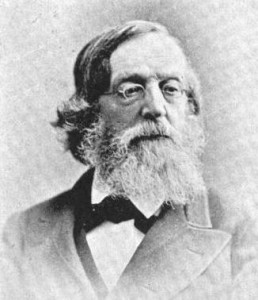Right now I’m listening to a sermon by John MacArthur in which he lays out what be believes is at stake regarding how Evangelicals view Roman Catholics: Are they co-laborers in Christ or are they a mission field?
In his talk, MacArthur expresses his amazement that some Evangelicals think that merely by deciding Roman Catholics are Christians, they automatically become such. He scoffs at “self-appointed Evangelical spokespeople” who make such claims in the media. Somehow lost on him is his own self-appointed spokesperson status as well as the fact that he believes merely by deciding Roman Catholics aren’t Christians that they somehow lose their redeemed status.
Biting ironies aside, it was one of his opening comments that gave me pause. In his preamble, MacArthur acknowledges that what he is about to say will offend practicing Roman Catholics and any non-Catholic Christians who consider Catholics to be brothers and sisters in Christ. However, he justifies the potential offense by saying,
Nothing is more loving than the truth. To let someone perish in a false system isn’t loving at all. To rescue people out of a damning and false religion is the only loving thing to do.
I find this justification interesting, because on one level, who can disagree with it? For example, if a friend or relative had told me back in the early 1990s that they were going to join David Koresh’s Branch Davidian commune in Waco, I would have done everything in my power to talk him or her out of it. And I wouldn’t have cared one whit if they were offended by my views.
The question is, what makes that situation different from the one MacArthur is describing, i.e., being a Roman Catholic?
If I put that question to MacArthur, I’m willing to bet he would say, “Nothing.” Granted, it’s unlikely the Pope and his followers will ever take refuge in the Vatican and self-immolate themselves, so the level of imminent physical danger to Roman Catholics is not even remotely comparable. But in the end, in MacArthur’s eyes, both belief systems lie outside the Christian fold and, therefore, render believers in such systems worthy of eternity in hell.
Again, to be perfectly fair, if one of my children told me they were going off to join the Branch Davidians, I would feel perfectly justified in kidnapping them or otherwise restraining them from making such a self-destructive move. I’m sure the legal system would disagree with me, but I would rather suffer in prison than allow one of my children to destroy him or herself. Considering that the consequences MacArthur believes non-Christians will face after they die are much, much higher, it would seem that virtually any means can be justified in order to save people from such a fate. And if we have to tromp on their personal feelings in our efforts to save them from hell, so be it.
 Interestingly, this is exactly the argument that Johnathan and Margie Phelps from the Westboro Baptist Church used to justify their behavior when I confronted them during the making of Hellbound? As ugly and offensive as their words, actions and day-glo signs might appear, they insisted they were motivated by one thing only–love. After all, if you see someone about to drive off a cliff, so they said, the most loving thing to do is scream as loud as possible in order to warn them of the imminent disaster.
Interestingly, this is exactly the argument that Johnathan and Margie Phelps from the Westboro Baptist Church used to justify their behavior when I confronted them during the making of Hellbound? As ugly and offensive as their words, actions and day-glo signs might appear, they insisted they were motivated by one thing only–love. After all, if you see someone about to drive off a cliff, so they said, the most loving thing to do is scream as loud as possible in order to warn them of the imminent disaster.
Ignoring the obvious glee the Westboro Baptists get from making their pronouncements, if we take a few steps back in history, this same logic can be seen in the writings of Augustine, who felt people who had drifted into error should be recalled to the faith by any means necessary.
Many must first be recalled to their Lord by the stripes of temporal scourging, like evil slaves, and in some degree like good-for-nothing fugitives.
Such thinking helped lay the groundwork for the Inquisition. And, taking a cue from their Catholic ancestors, many of the Reformers also regarded heresy as a crime worse than murder and believed heretics should be treated as such.
The contention that heretics should not be punished is as monstrous as the contention that patricides and matricides should not be put to death; for heretics are a thousandfold worse criminals than these. (John Calvin)
When heresy breaks forth… then the magistrate must punish not with less but with greater vigor than is employed against other evil-doers, robbers, murderers, thieves, and the like… (Urbanus Rhegius, an associate of Martin Luther)
As Thomas Talbott notes, if you believe in eternal torment in hell, virtually all forms of terror can be–and have been–justified in order to prevent this ultimate terror from being realized. All in the name of love. And let’s face it, who could be surprised that those who believe God is the Ultimate Terrorist would resort to terror themselves?
For those who think calling MacArthur’s god a terrorist is going too far, I’ll go one step further and say MacArthur’s god is worse than a terrorist, because he supposedly created billions of people for the sole purpose of terrorizing them. Forever! Why? To remind the select few he “saves” just how lucky they are. If you’d like a glimpse of what it will be like to experience such a “heaven,” imagine how the lone survivor of this scene in Kevin Smith’s Dogma feels.
So is John MacArthur a terrorist? (Uh oh, I just heard the NSA’s ears perk up.)
Perhaps not in a way that the Department of Homeland Security would recognize, but I believe MacArthur is a terrorist in the same way the Westboro Baptists are terrorists, because they have devoted their lives to sowing fear in order to persuade people to embrace their particular theological system. Unlike the Inquisitors and the early Reformers, however, MacArthur, the Westboro Baptists and other fear mongers (thankfully) lack the political power required to dissuade or punish heretics to the desired extent. But if they ever get it, you can rest assured they will eventually use it to that end, carefully cloaking their actions as a “necessary evil.” After all, non-religious institutions resort to this logic all the time.
Wow, it feels like we’ve come a LONG way from MacArthur’s opening, Catholic-bashing remarks. Now I have him in the White House nuking the Vatican. Where’s Denzel Washington when you need him?
So let me get back on point: Yes, it’s right and good to be concerned for the well being of others. And yes, certain belief systems are inherently destructive. And, as the Branch Davidians illustrate, we don’t have to wait until people die to observe the consequences. So we should do everything in our power to dissuade people from falling into such self-destructive lifestyles.
But (and yes, Emma Pavey, it’s a really big but) when our efforts to save people from hell–either temporal or eternal–cause us to inadvertently sow the seeds of hell on earth, we should pause and ask ourselves some serious questions, such as:
- What makes us so confident we have the truth and those other guys don’t? (Hint: Jesus seems to indicate an ethical rather than a theological test.)
- Since when did holding the correct views about some theological system become the definition of being saved? (See the Pope’s remarks on this.)
- And, perhaps most importantly, if the consequences of not following our God are so irreversibly terrible, what does that say about the God we believe in?
After all, if what MacArthur says is true–if nothing is more loving than the truth, if letting someone perish in a false system isn’t loving at all, and if rescuing people out of a damning and false religion is the only loving thing to do–how could a loving God ever create a universe in which doing the most loving thing is finally and irrevocably impossible?











